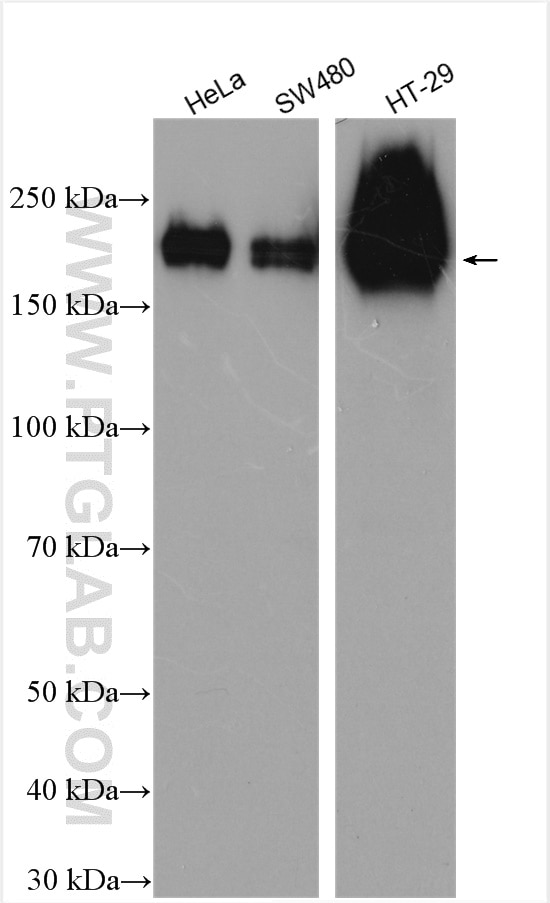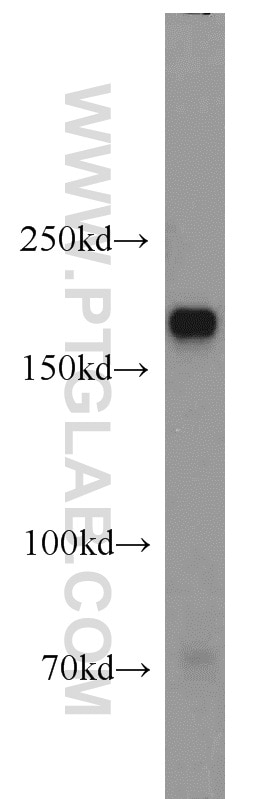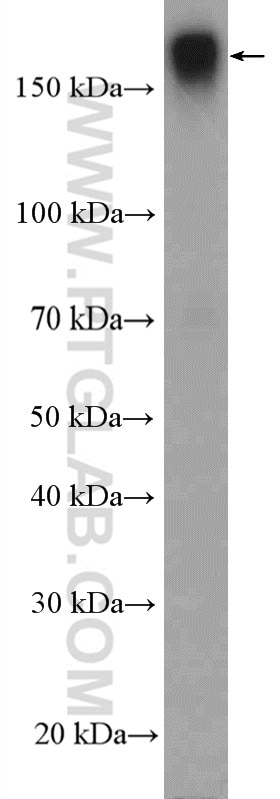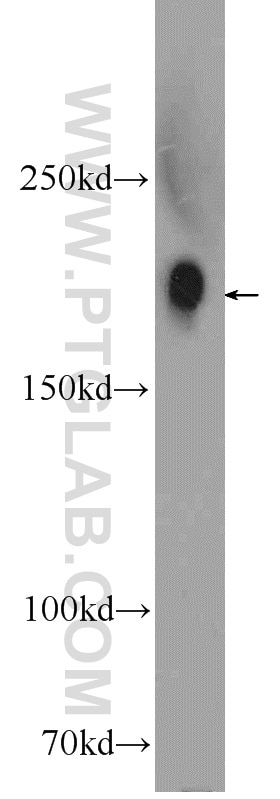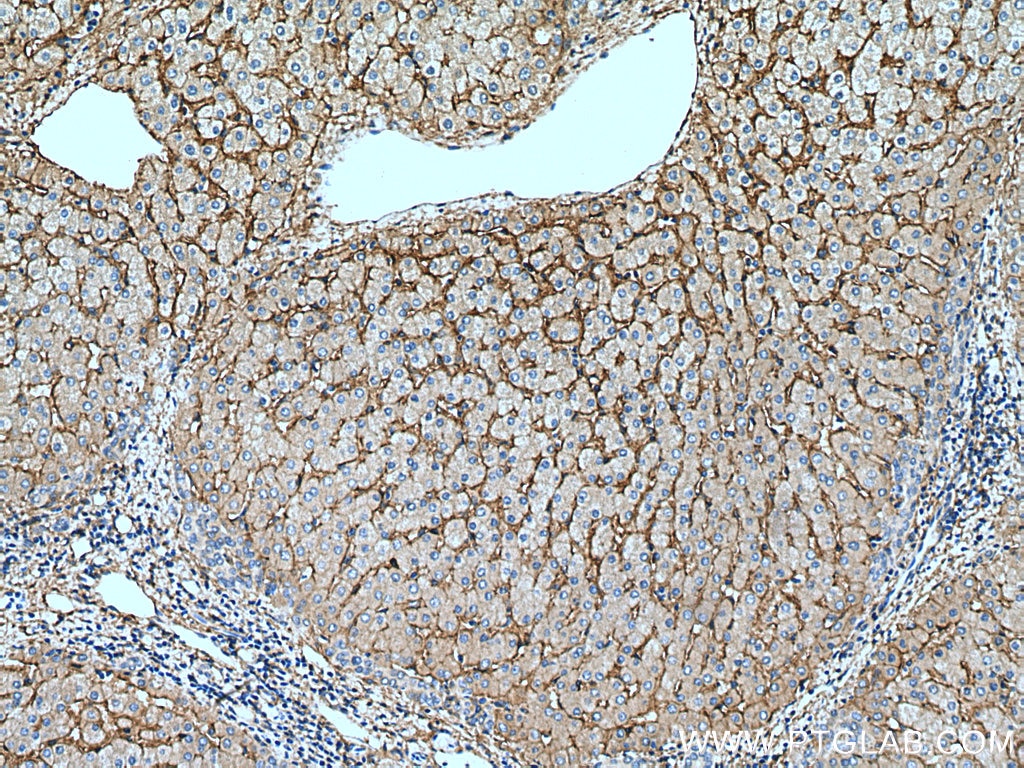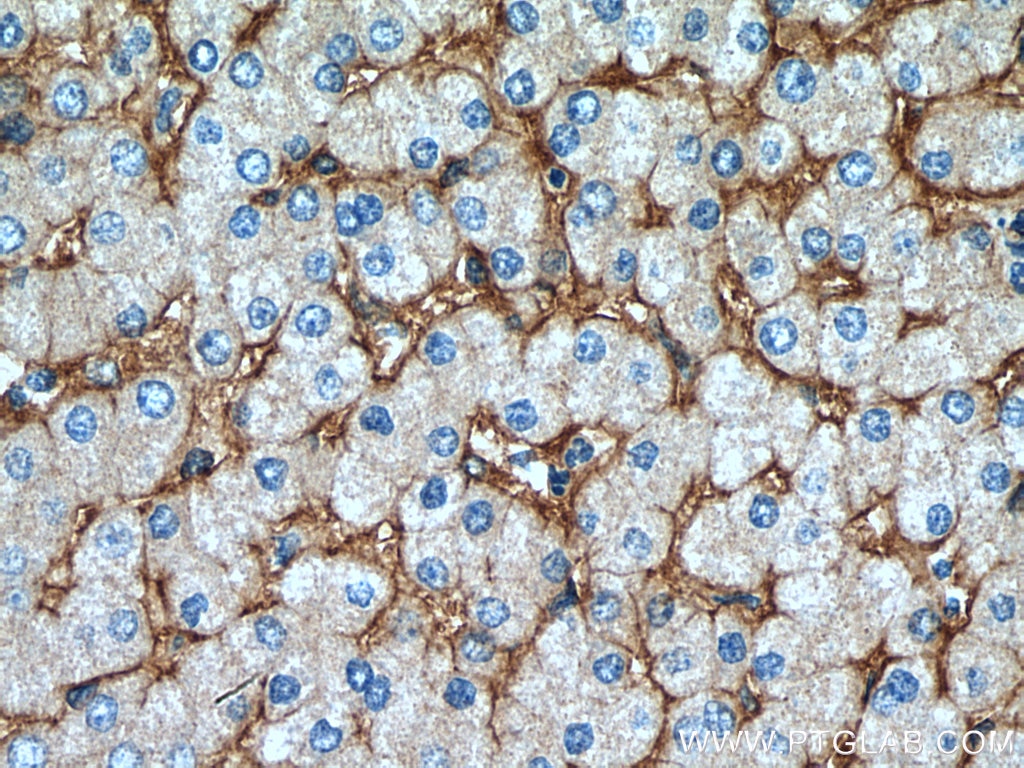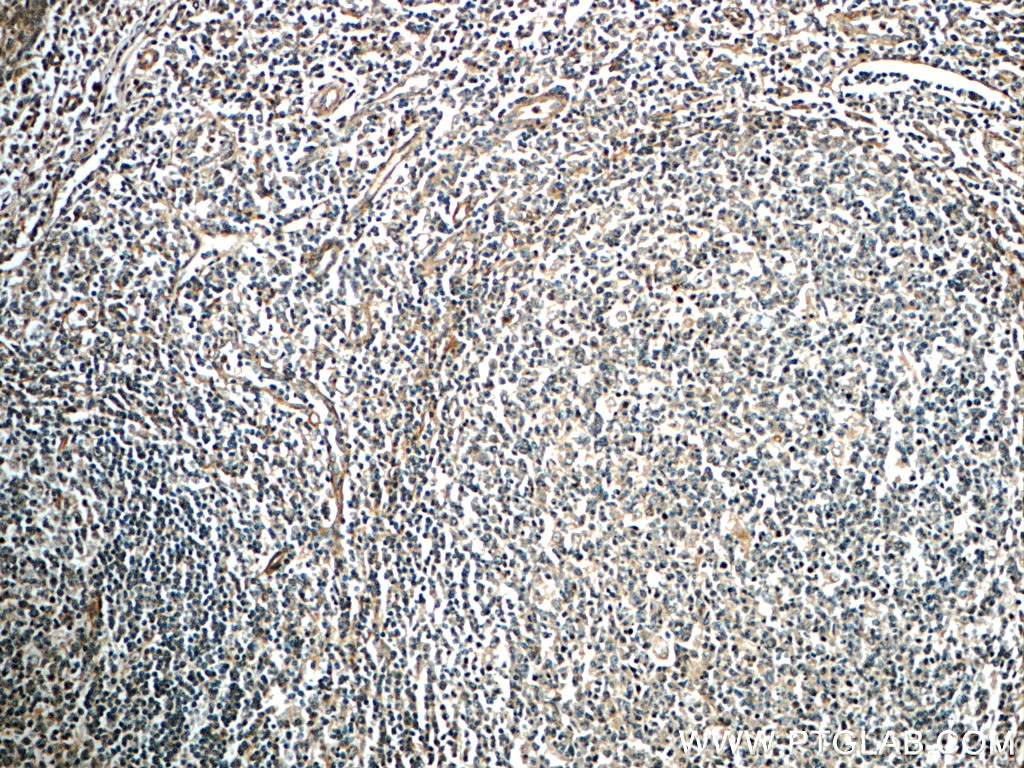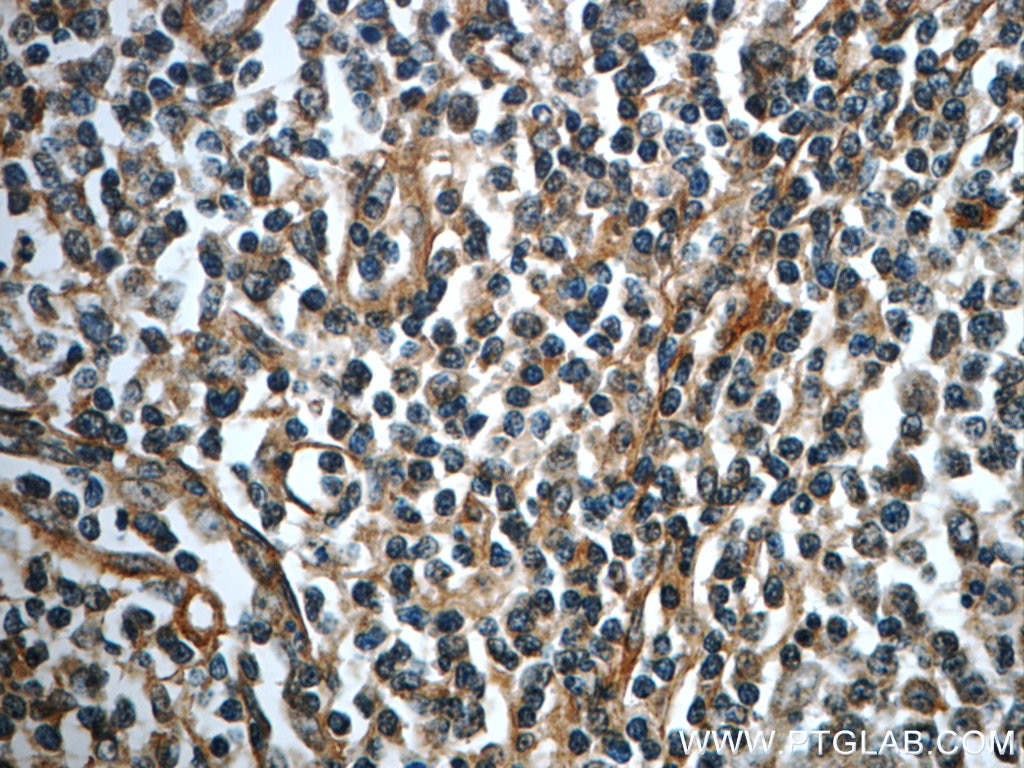Tested Applications
| Positive WB detected in | HeLa cells, HepG2 cells, SMMC-7721 cells, SW480 cells, HT-29 cells |
| Positive IHC detected in | human liver tissue, human tonsillitis tissue Note: suggested antigen retrieval with TE buffer pH 9.0; (*) Alternatively, antigen retrieval may be performed with citrate buffer pH 6.0 |
Recommended dilution
| Application | Dilution |
|---|---|
| Western Blot (WB) | WB : 1:500-1:2000 |
| Immunohistochemistry (IHC) | IHC : 1:50-1:500 |
| It is recommended that this reagent should be titrated in each testing system to obtain optimal results. | |
| Sample-dependent, Check data in validation data gallery. | |
Published Applications
| KD/KO | See 2 publications below |
| WB | See 11 publications below |
| IHC | See 3 publications below |
| IF | See 3 publications below |
Product Information
22146-1-AP targets Integrin alpha 1 in WB, IHC, IF, ELISA applications and shows reactivity with human samples.
| Tested Reactivity | human |
| Cited Reactivity | human, mouse, rat |
| Host / Isotype | Rabbit / IgG |
| Class | Polyclonal |
| Type | Antibody |
| Immunogen | Integrin alpha 1 fusion protein Ag17584 Predict reactive species |
| Full Name | integrin, alpha 1 |
| Calculated Molecular Weight | 1179 aa, 131 kDa |
| Observed Molecular Weight | 180 kDa |
| GenBank Accession Number | BC137121 |
| Gene Symbol | Integrin alpha 1 |
| Gene ID (NCBI) | 3672 |
| RRID | AB_2879008 |
| Conjugate | Unconjugated |
| Form | Liquid |
| Purification Method | Antigen affinity purification |
| UNIPROT ID | P56199 |
| Storage Buffer | PBS with 0.02% sodium azide and 50% glycerol, pH 7.3. |
| Storage Conditions | Store at -20°C. Stable for one year after shipment. Aliquoting is unnecessary for -20oC storage. 20ul sizes contain 0.1% BSA. |
Background Information
The integrins are a superfamily of cell adhesion receptors that bind to extracellular matrix ligands, cell-surface ligands, and soluble ligands (PMID: 17543136). They are transmembrane αβ heterodimers and at least 24 distinct integrin heterodimers are formed by the combination of 18 α and eight β known subunits (PMID: 17543136; 20029421). In addition to mediating cell adhesion, integrins also play important roles in modulating signal transduction pathways that control cellular responses including migration, proliferation, differentiation, and apoptosis (PMID:19118207). Integrin alpha-1 (ITGA1, CD49a) combines with the beta 1 subunit (ITGB1, CD29) to form a cell-surface receptor for collagen and laminin. This receptor is involved in cell-cell adhesion and may play a role in inflammation and fibrosis. Integrin alpha-1 is a transmembrane glycoprotein with an apparent molecular weight of 180-250 kDa, larger than the calculated molecular weight of 131 kDa (PMID: 2475259; 3257425; 11557277; 18840653).
Protocols
| Product Specific Protocols | |
|---|---|
| WB protocol for Integrin alpha 1 antibody 22146-1-AP | Download protocol |
| IHC protocol for Integrin alpha 1 antibody 22146-1-AP | Download protocol |
| Standard Protocols | |
|---|---|
| Click here to view our Standard Protocols |
Publications
| Species | Application | Title |
|---|---|---|
Mediators Inflamm ITGA1 Promotes Glioma Cell Proliferation and Affects Immune Cell Infiltration in Low-Grade Glioma | ||
Int J Biol Sci Integrin α1 promotes tumorigenicity and progressive capacity of colorectal cancer.
| ||
Int J Oncol Downregulation of METTL6 mitigates cell progression, migration, invasion and adhesion in hepatocellular carcinoma by inhibiting cell adhesion molecules | ||
J Ethnopharmacol A combination index and glycoproteomics-based approach revealed synergistic anticancer effects of curcuminoids of turmeric against prostate cancer PC3 cells. | ||
Int J Oncol FAM83A exerts tumor‑suppressive roles in cervical cancer by regulating integrins. | ||
Reviews
The reviews below have been submitted by verified Proteintech customers who received an incentive for providing their feedback.
FH Boyan (Verified Customer) (04-24-2019) | This antibody labelled a band above 250 kD, which is likely the glycosylated form of Itga1. But, it did not label any band around 170 kD as shown in the data sheet.
|
